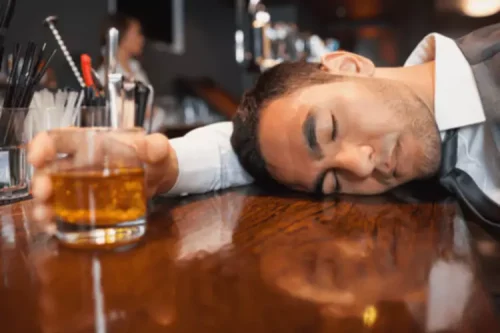
There’s a lack of evidence linking reduced alcohol consumption to weight loss. A study published in 2016 found that decreasing light-to-moderate alcohol consumption did not significantly affect weight loss. Still, the researchers noted that reducing alcohol intake led to less impulsivity, like overeating.
Alcohol can contribute to excess belly fat

Some evidence suggests that heavy drinking may cause your adrenal glands not to regulate how much cortisol they secrete. As a result, people who drink heavily may have high cortisol levels. Weight is certainly not the only factor when it comes to health. Still, there does alcohol make you gain weight are a few things you may want to know about alcohol intake and body composition if you think drinking may affect your weight. While the calories in one glass of wine don’t seem like a lot, a few glasses pack over 300 calories and a bottle has upwards of 600 calories.
What Do Sober People Do For Fun? 21 Alcohol-Free Ideas
However, the effects of alcohol surpass even social drinking etiquette. Excess alcohol consumption can lead to what is known as alcoholic fatty liver. The primary role of your liver is to act as the “filter” for any foreign substances that enter your body, such as drugs and alcohol. The liver also plays a role in the metabolism of fats, carbohydrates, and proteins.
You Can Also Gain Weight From Drinking Alcohol
“Excessive alcohol consumption can cause nerve damage and irreversible forms of dementia,” Dr. Sengupta warns. When you drink too much alcohol, it can throw off the balance of good and bad bacteria in your gut. But when you ingest too much alcohol for your liver to process in a timely manner, a buildup of toxic substances begins to take a toll on your liver. Your liver detoxifies and removes alcohol from your blood through a process known as oxidation.
- According to two studies published in 2021, a high intake of alcohol may increase food cravings.
- Members of this group were advised that they could decrease drinking as a means of reducing caloric intake.
- In a 2010 study published in the Archives of Internal Medicine, the drinking habits of 19,220 U.S. women aged 39 or older with “normal weight” (based on BMI) were tracked for 13 years.
While moderate alcohol intake is not considered harmful, heavy drinking may increase your risk of developing liver issues and certain diseases. Still, even if abusive drinkers do get a few rounds on the house, calorically speaking, it doesn’t add up to a knockout figure. Habitual excessive alcohol consumption has long been linked to an increased waist-to-hip ratio (a fancy term for a beer belly). Research shows, however, that even infrequent binge drinking can thicken your midsection. This occurs because alcohol’s high carbohydrate and sugar levels can trigger weight gain. In addition, you’re more likely to eat heavier foods after a night out drinking and are less likely to feel full, requiring you to eat more than normal, according to the Better Health Channel.
Alcohol Affects the Body’s Fat-Burning Capability
- Research shows that binge drinking is closely linked to overeating.5 The influence of alcohol on food choices was also well demonstrated in an animal study.
- When you drink too much alcohol, it can throw off the balance of good and bad bacteria in your gut.
- If you consume too much of it, you can develop alcohol poisoning or even die.
- All of the available studies have examined moderate intake of alcohol, and the majority have reported results on beer and wine intake, but not other forms of alcohol [3•, 5].
When compared side by side, wine has slightly more calories than light beer and most liquors, but less than regular and heavy beers. Mixers like juices and sodas can significantly increase the calorie and carb contents of distilled spirits, such as vodka, gin, and whiskey. In comparison, one 12-ounce (355-mL) serving of light beer has around 100 calories, while the same amount of regular beer has closer to 150 calories — and even more if it’s a heavy beer. Meanwhile, a 1.5-ounce (44-mL) shot of vodka has 97 calories (7, 8, 9).

Therefore, the objective of this article is to provide an update on the link between alcohol intake and obesity. Furthermore, factors that may explain the conflicting findings in this research area are discussed. Finally, recommendations for future research https://ecosoberhouse.com/ are provided to promote a better understanding of the possible obesity-promoting effects of energy intake from alcohol. Increased body fat due to low testosterone levels further impairs the body’s ability to effectively produce and utilize this hormone.
How To Avoid Gaining Weight The Day After Drinking

Alcohol disrupts your metabolism and lowers testosterone which, in addition to the added calories, contributes to weight gain. This is why you enthusiastically shove cold slices of pizza in your face the day after drinking. So to recap where we are currently, you’ve just consumed anywhere from 1,000-2,000 calories at the pub, and now you’re inhaling another 1,500-2,000 calories of high fat, high sodium food.

Avoid high-calorie mixers; opt for seltzer or lime to add flavor without the extra sugars. Still, these factors do contribute to a longer-term connection between alcohol and weight gain. When that happens, your body may try to hold on to as much water as possible. This causes water retention and bloating, which can result in a temporary increase in weight when you step on the scale the following day. Other than that, choosing drinks less likely to cause bloating is another option. Avoiding carbonation, artificial sugars, mixed drinks that include lots of ingredients, and drinking through a straw may all reduce the bloating that can occur after drinking.
